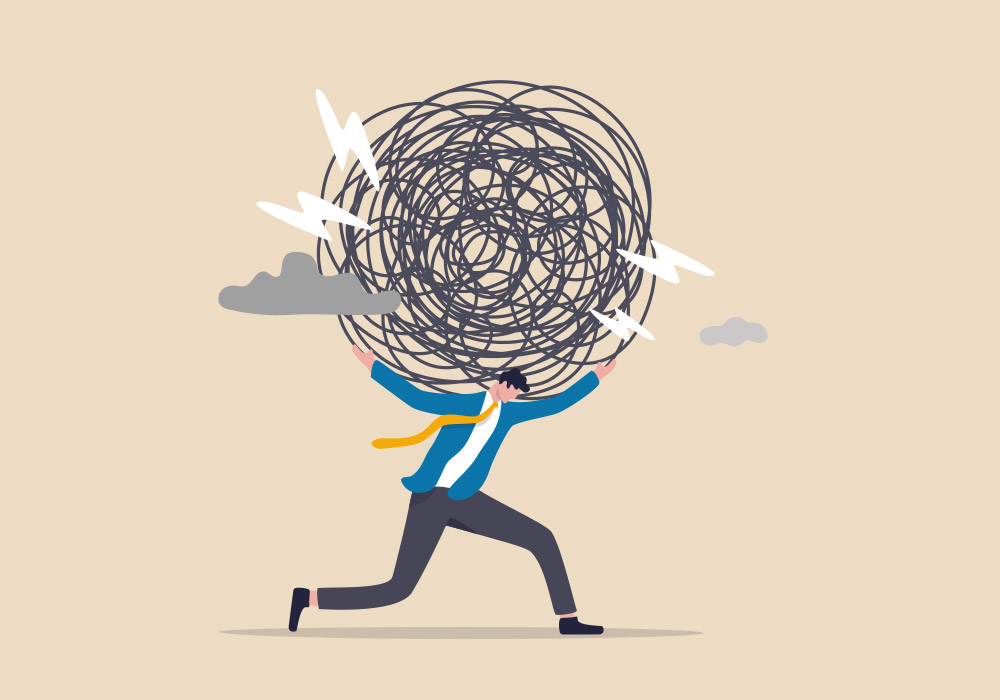What happens when we get stressed? It’s as if our brain is racing and, as fast as it’s going, we are unable to keep up with our own thoughts. Our mind gets overloaded and eventually it happens: we burn out.
The management of work-related stress is one of today’s major mental health issues. Despite increasing efforts by organisations to look after the wellbeing of their employees, there’s still room for improvement.
What will I read about in this article?
The problems triggered by poor management of work-related stress
Data says that many workers admit to being stressed and burnt out. A combination that threatens the
We’re referring to aspects such as the environment in which we live, family and social relations, the economic situation and, of course, work.
Work-related stress has become a global health problem. The World Health Organisation already considers burnout to be a problem related to time spent at work. It’s associated with chronic stress at work, characterised by depersonalisation of tasks, emotional and physical exhaustion, and poor performance.
“Do you think you were stressed yesterday?” is the question
Gallup asked in its global survey on the employment landscape. In 2021,
44% of workers answered yes. While it is true that not all said they were stressed because of work, inevitably their state of mind affected their job performance.
“44% of workers felt stressed in 2021”.
When we’re stressed, we perform worse. But we also feel less attached to the company we work for and are more willing to look for a new position in another organisation.
The paradox of recovery
According to research from the Department of Psychology at the University of Mannheim, Germany, we fall into a paradox when trying to recover from stress. According to the experts, the more tired our bodies and minds are, the less able we are to do anything to stop and rest.
For example, when work is demanding and we feel we can’t cope with it all, we make the mistake of putting in long hours trying to get it done and we don’t think about resting.
In addition, poor stress management also leads us to eat less healthily, even though proper nutrition and hydration are important to replenish energy levels. As a result, we’re even more tired to practise sport or any other activity that could help us mitigate stress.
“The more tired our bodies and minds are, the less able we are to do anything to stop and rest”.

